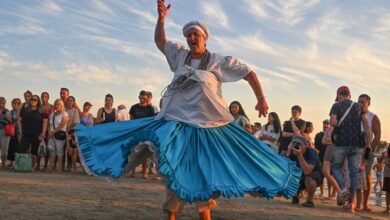De Jong: the new influence of Dutch football at FC Barcelona
Listen this article
After the signing of the talented Ajax midfielder, we analyze the importance of the player of the Netherlands in the ideology of the Catalan club

Last January 23, FC Barcelona signed who has been considered one of the players with the most future in football: Frenkie de Jong. The young player, 21, will arrive at the Catalan club on July the 1st, coming from Ajax de Holanda. According to the newspaper La Vanguardia, De Jong signed a five-year contract for a price of 75 million fixed euros, plus 11 million in variables.
Leer en español: De Jong: la nueva influencia del fútbol holandés en el FC Barcelona
"Based in his club and in the Netherlands national team, De Jong has now decided to take a big leap in his career to reach a Barça that has a very special relationship with Dutch football , " explained the Spanish publication; and is that after the signing of this player is also added the presumed interest of Barcelona by Groningen footballer, Ludovit Reis, who, like De Jong, officiates as a midfielder, but with 18 years promises to be a shock to his compatriot .
Besides, the "obsession" of Barça goes further, because in recent months has also been interested in getting the services of Matthijs de Ligt, a young defender of 19 years, one of the best in Holland, including one of the best of the world.
It may interest you: Simeone and Atlético de Madrid: bad panorama for 2019-20?
Johan Cruyff: the Dutch culé
It is no secret to anyone that the last 50 years of Barcelona have been influenced by the impact of Dutch players, with Johan Cruyff as the most iconic. The Sport newspaper details what Cruyff represented for Barça from the moment he first appeared on October 28, 1973, in a match that Barça won 4-0 against Granada.
For that season, the Culé team came from three defeats, two draws, and only one victory; besides, a drought of 14 years without lifting the league title. However, as detailed in the sports media, the arrival of Cruyff not only introduced magic to the club but led him to be crowned champion in that season.
"He is one of the great legends of football, not only as a player but also for what he did as a coach […] The Barcelona fans thank him for everything. For the modernity, he brought to the club, for the change in philosophy he brought. He did a lot for Barça, and you could not understand the current Barça without Johan Cruyff ", were the words of the president of FC Barcelona, Josep Bartomeu, in 2016, the year in which the former Dutch player died.
However, the football genius of Cruyff was not reduced to the control he had of the ball, but to the analysis he made of football and that he knew how to implement in Barcelona. Following what was learned to Rinus Michels (coach of the Dutch national team and Barça between the 70s and 80s), the crack of the number "14" (the 9th in Barcelona) was able to understand and put into practice the so-called 'total football', game ideology that Barça is still developing today.
The BBC indicated that "before he took charge, the Academy of Barcelona concentrated on the physical," but with his arrival on the bench, the control of the ball and the occupation of all the spaces of the court became the maximum instrument of the Catalan club, especially from the La Masía quarry. In short, it was the influence of Cruyff that managed to get the maximum exponent of players like Andres Iniesta, Xavi Hernandez and, of course, Lionel Messi. "Johan Cruyff painted the chapel. The coaches of Barcelona only restore it or improve it, "said Josep'Pep 'Guardiola, considered Cruyff's primary pupil.
The Dutch seed at Barça
Now, Johan was not the only Dutch reference that Barcelona has had on the field. As reported by the team's official website, before Frankie de Jong, and including Cruyff, 19 other players from the 'Netherlands' have already debuted.
Among the most important are Patrick Kluivert, Frank de Boer, Giovanni van Bronckhorst, Mark van Bommel, Edgar Davis and, of course, Ronald Koeman. Notably, the latter, known as Tintin Koeman, "is a fundamental part of Barça history thanks to the goal that gave the victory to Barca in the final of the European Cup in Wembley '92", against Sampdoria.
In this way, one could say that in modern football you can not talk about Barcelona without first exalting Dutch football in its history.
LatinAmerican Post | Christopher Ramírez Hernández
Translated from "De Jong: la nueva influencia del fútbol holandés en el FC Barcelona"





